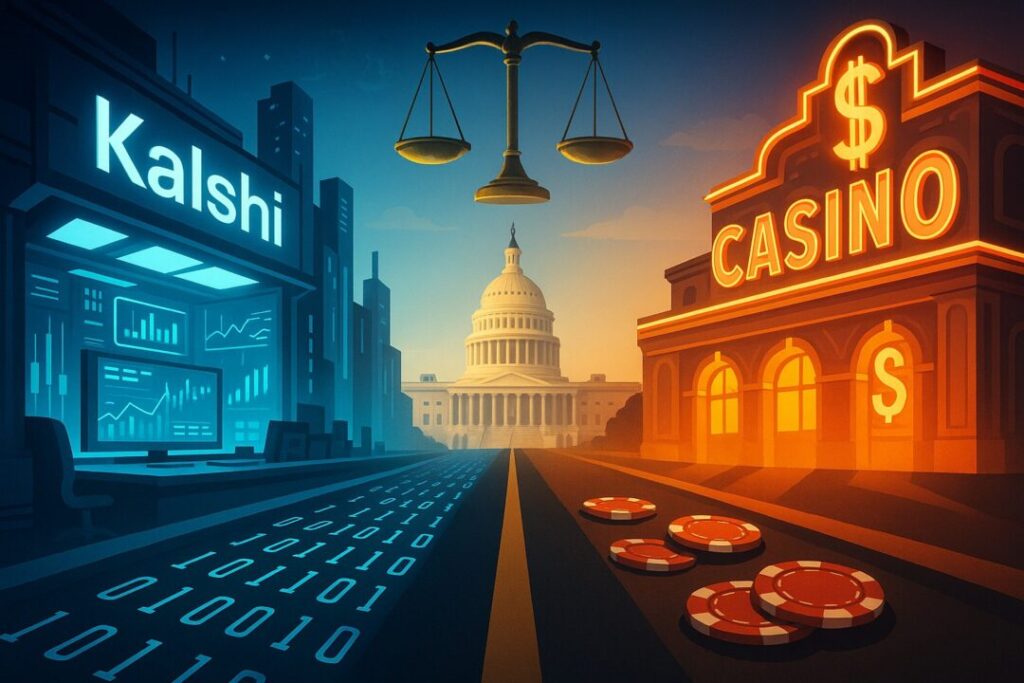Rep. Dina Titus took to X this week with a post blasting the prediction market company Kalshi.
She wrote:
“Point spreads and prop bets through @Kalshi are sports betting. No one can seriously claim otherwise. These new offerings clearly violate @CFTC regulations and gaming laws. The agency’s silence is troubling, and that’s even before @BrianQuintenz is confirmed.”
Point spreads and prop bets through @Kalshi are sports betting. No one can seriously claim otherwise. These new offerings clearly violate @CFTC regulations and gaming laws. The agency’s silence is troubling, and that’s even before @BrianQuintenz is confirmed.…
— Dina Titus (@repdinatitus) August 19, 2025
It sounds dramatic, but the claims don’t hold up.
And for folks here in Nevada, this isn’t just about betting. It’s about whether Washington and Nevada Democrats will allow competition – or whether they’ll keep protecting the casinos at all costs.
Prediction Markets Aren’t Sportsbooks
Titus says Kalshi’s contracts are “sports betting.” That’s a stretch.
Sportsbooks in Las Vegas take fixed bets on games with odds set by the house. Kalshi, on the other hand, runs a federally regulated prediction market where people trade contracts on whether events will happen.
Those events might be tied to sports, but they also include politics, weather, and economic outcomes.
The Commodity Futures Trading Commission (CFTC) oversees these contracts under federal law.
Unlike a bet at Caesars Palace, prices on Kalshi shift as traders buy and sell, much like stocks. The point is less about gambling and more about discovering what the market thinks will happen.
Last year, a federal judge ruled that Kalshi’s election contracts were legal under the CFTC’s authority.
That’s a big difference from Titus’ claim that “no one can seriously claim otherwise.” In fact, a court already has.
Do They Really Violate the Law?
Titus also wrote that Kalshi’s contracts “clearly violate” CFTC rules and gaming laws.
If it were that clear, courts wouldn’t keep siding with Kalshi.
The company is officially recognized as a “Designated Contract Market,” meaning it’s allowed to self-certify contracts under the Commodity Exchange Act.
Unless the CFTC steps in and says no, those contracts stand. So far, the agency has not banned Kalshi’s sports contracts.
And in 2025, a federal court here in Nevada ruled that state gaming laws don’t apply. Federal authority wins out.
That hasn’t stopped Titus and other Democrats from pushing state-style regulation, but judges have already said Kalshi can operate.
Critics may argue that Nevada’s casinos play by a different set of rules and face higher taxes, while Kalshi’s contracts bypass those costs.
But that’s not “illegal” – it’s just a new business model. Conservatives would say that’s called innovation.
Attacking a Trump Nominee
Titus also questioned the CFTC’s “silence” and pointed to Brian Quintenz, President Trump’s nominee to head the agency.
She implied a conflict because Quintenz sat on Kalshi’s board.
Here are the facts: Quintenz pledged to resign, sell his shares, and recuse himself from anything involving Kalshi for at least a year if confirmed. That addresses the conflict.
So why bring it up?
Critics see this as politics. Titus has a history of going after Trump nominees, and this looks like another attempt to score points rather than talk about policy.
The Real Story: Protecting Nevada Casinos
For Nevadans, it’s not hard to connect the dots.
Casinos bring big money and big influence. They don’t want competition from a national platform like Kalshi, which isn’t tied down by state-by-state rules.
Titus, who represents Las Vegas, has long carried water for the gaming industry.
Back in February, she called prediction markets a “backdoor way” to legalize sports betting.
To conservatives, this isn’t about protecting consumers. It’s about protecting Nevada’s monopoly.
Casinos don’t want a free-market competitor they can’t control.
Why It Matters
Prediction markets aren’t just a sideshow. They’re tools that help businesses and individuals hedge risk and measure what people really think will happen.
They’re federally regulated. And they’ve already passed legal tests in court.
By framing them as “illegal gambling,” Titus isn’t protecting Nevadans – she’s protecting special interests.
That might make the casino bosses happy, but it stifles innovation and limits choice for everyone else.
At the end of the day, conservatives believe in competition.
If Kalshi can offer something different, let the market decide. Nevada shouldn’t use its political clout to shut down new ideas.
Bottom line: Dina Titus is trying to scare people with claims that don’t match the facts.
Courts and regulators have said Kalshi’s markets are legal. Her attack looks less like consumer protection and more like protectionism for Nevada casinos.
The opinions expressed by contributors are their own and do not necessarily represent the views of Nevada News & Views. This article was written with the assistance of AI. Please verify information and consult additional sources as needed.



